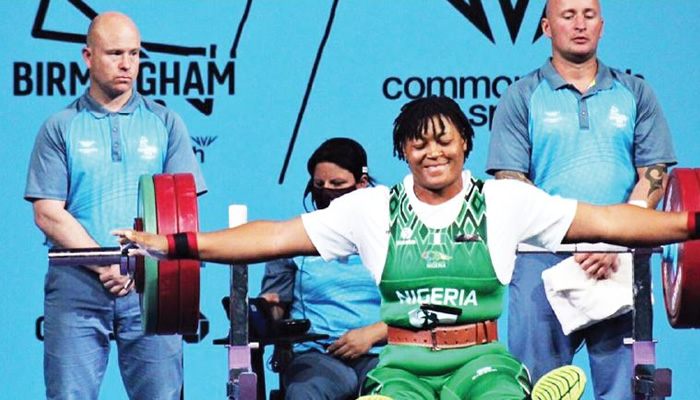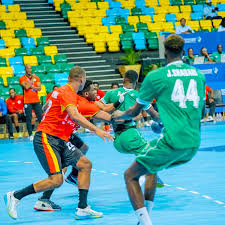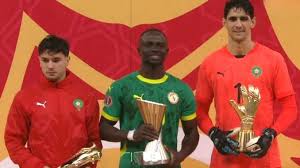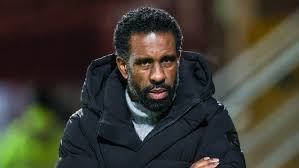
If you want caring woman, go for an athlete – Oluwafemiayo
I was introduced into the sport by one of my uncles. That was in 1999. I met a coach and that’s how I started training with him in Jos back then.
Was it easy for you from the beginning?
No, it was not an easy thing because for the first time, if you come for training, there must be pains, you will feel the pains. So, if you don’t have the endurance, you will not go back.
Did you feel like giving up at any point?
For the first week, yes I did, but then I met some people there, ladies like me. That’s how I picked up the interest. I had to go back but before going back, my coach would come to my house every minute. He said, ‘You can do it, let’s go there. At least you can see so many ladies who are still doing it.’ That’s how I went back to training.
How did you lose your legs? Were you born that way?
No, I was not born this way. It came from Poliomyelitis and I just had to live with it and adjust.
What are some of the challenges you have faced?
If you don’t move with people, you will not know the kind of people they are. We still have some people who look at you in a strange manner because you do not walk like them. It’s very embarrassing. If you see somebody just staring at you, you will have to always question them, ‘why are you staring at me? Is it because I am a physically challenged person?’ So, it makes you feel somehow, but once you know who you are, you will not let that discourage you.
Was your family supportive when you decided to go into sports?
They were very very supportive and encouraging while I was growing up, but when it came to sports, they needed convincing. As a physically challenged person, if you tell your parents this is what you want to do, in the first place they will first discourage you saying things like, ‘You cannot do it with your condition.’ Most parents believe if they have a physically challenged child, it is only sitting jobs they have to do. So, anything you want to do, you should be sitting, which is not supposed to be. But if you have the exposed parents, they will encourage you to go for it. But for now, I believe we are more civilised. They can see anything going on in the world on social media, but back then, it wasn’t like that. So, when they (parents) heard that as a female, I wanted to be lifting and pushing weights, they said no, but with time, they started supporting me.
How has a career in sports changed your life?
It has changed my life in a lot of ways. God has used it to bless me and my family. I have won many competitions and gotten a lot of cash rewards for it. It has not been an easy journey, but without power-lifting, I don’t think I would have gotten this far.
How did you meet your husband?
I met him (my husband) in sports, he is into the game too. He is also a para-powerlifter, so, it was easy for us to come together based on our similar experiences in society, and build a relationship.
Some believe that women in sports like powerlifting and combat sports are usually not romantic because of its peculiarotes. What do you think about that?
They are the most caring people in the world. Yes, women in sports are the most caring people. If you are looking for a woman that will care for you, just go for a sportswoman. Try it and you will enjoy it.
What motivates you?
You know, if you have passion for something and you have that determination that this is what I want, you will go for it and you will find out that you will be successful in it.
What is the happiest moment in your career?
Every day is a good day. When you go out for a competition and you win, you will be happier. I have been happy with all my events. But I will say my biggest achievement in powerlifting was at the Commonwealth Games in Birmingham in the United Kingdom in 2022 when I won the gold medal in the heavyweight category. Last year was a great year for female athletes in Nigeria.
What about the saddest moment of your career?
You know, being a champion is not forever. The more you train, the more you will have people training to beat your record, so you have to put more effort. Whenever you don’t win, don’t let that sadden you. I won’t say there are difficult competitions, it’s just like a game. There is nothing difficult, it’s either you win or you lose. That’s it.
What do you think about Para sports in Nigeria in general? How seriously do you think the government takes it?
We thank God for their support and we are still praying for more support from them. I think that if Para-athletics gets the level of focus that football gets, it can become the biggest sport in Nigeria. It will take over all of Nigeria. It is something that can create opportunities for many that are lying around in the country. With the right support, they can grow.
What is your next target now?
You know, if you have passion for a sport, just like I have for Para-powerlifting, even if I want to retire, I have to go for officiating and coaching too. That is the next target now.
How do you feel when you look at your numerous medals?
I still have all my medals, I put them all around my house and decorated our place with it. Everyday, I see them and it motivates me to continue to give my best.





